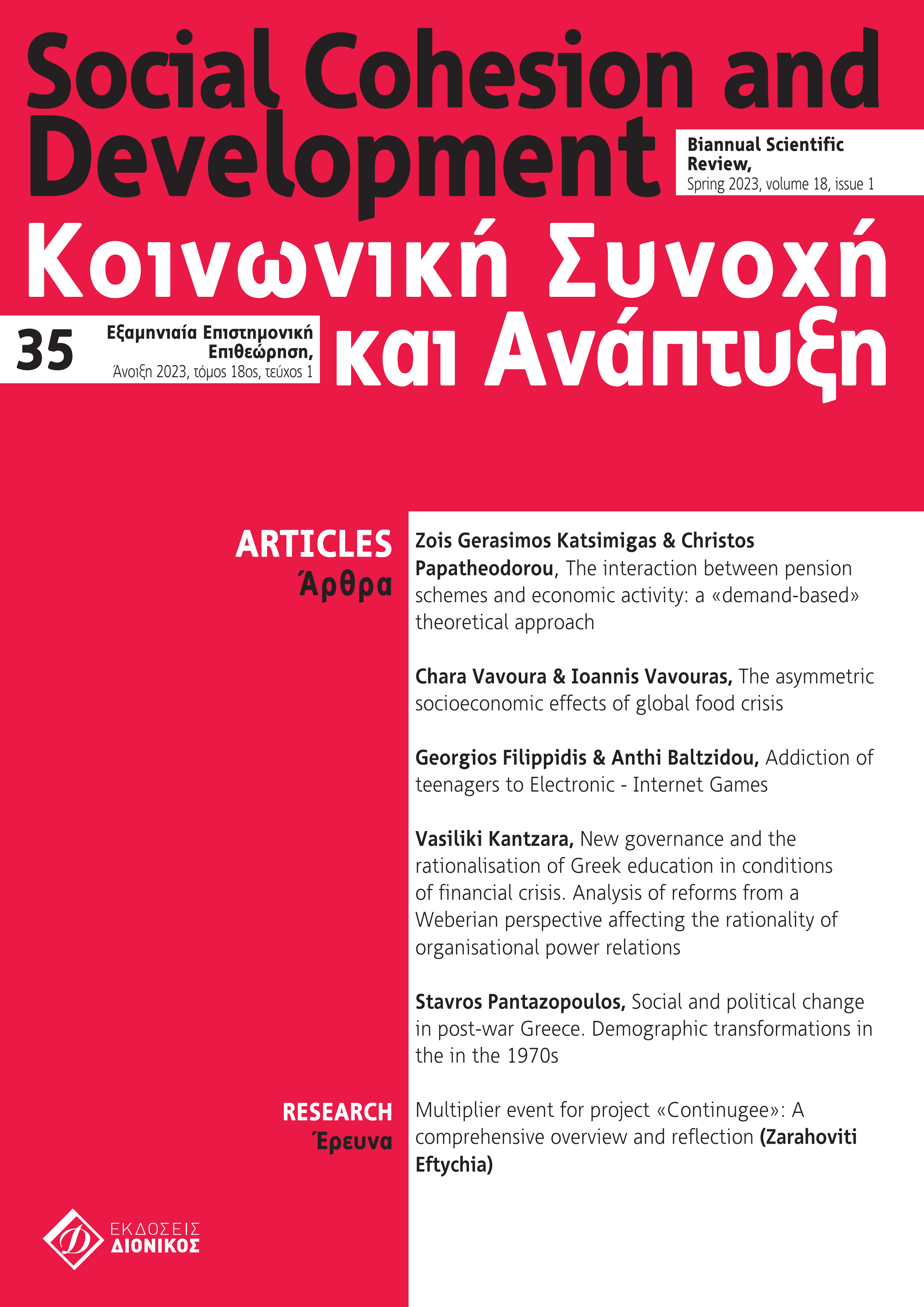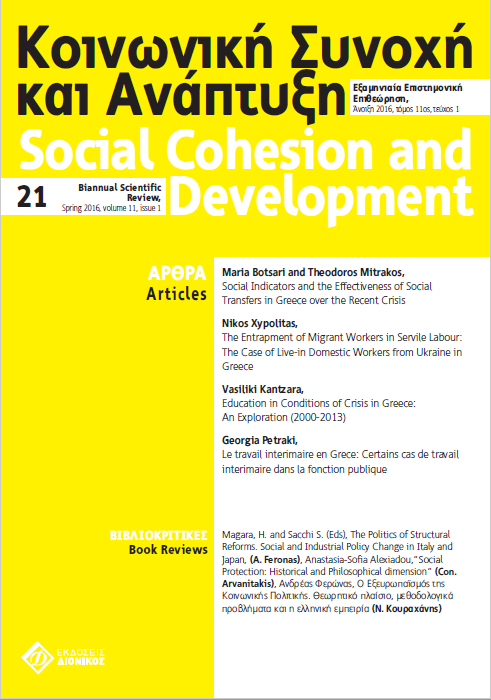New governance New governance and the rationalisation of Greek education in conditions of financial crisis. Analysis of reforms from a Weberian perspective affecting the rationality of organisational power relations

Abstract
The present article aims to examine the reforms introduced by the governments in the education system in crisis conditions (2010-2015) from a Weberian perspective. To this end, firstly, we explore affinities between the notion of Weber’s rationalisation to the ‘new governance’ approach to running institutions as it emerged after the Second Word War in the West . Subsequently, we examine the relation of the ‘new governance’ approach to educational reforms in Greece during the period under study and its effects in organisational terms.
Article Details
- Zitationsvorschlag
-
Kantzara, V. (2023). New governance New governance and the rationalisation of Greek education in conditions of financial crisis. Analysis of reforms from a Weberian perspective affecting the rationality of organisational power relations. Social Cohesion and Development, 18(1), 53–67. https://doi.org/10.12681/scad.37328
- Ausgabe
- Bd. 18 Nr. 1 (2023): ¨Νο 35
- Rubrik
- Articles

Dieses Werk steht unter der Lizenz Creative Commons Namensnennung - Nicht-kommerziell - Weitergabe unter gleichen Bedingungen 4.0 International.
Authors who publish with this journal agree to the following terms:
- Authors retain copyright and grant the journal right of first publication with the work simultaneously licensed under a Creative Commons Attribution Non-Commercial License that allows others to share the work with an acknowledgement of the work's authorship and initial publication in this journal.
- Authors are able to enter into separate, additional contractual arrangements for the non-exclusive distribution of the journal's published version of the work (e.g. post it to an institutional repository or publish it in a book), with an acknowledgement of its initial publication in this journal.
- Authors are permitted and encouraged to post their work online (preferably in institutional repositories or on their website) prior to and during the submission process, as it can lead to productive exchanges, as well as earlier and greater citation of published work (See The Effect of Open Access).




